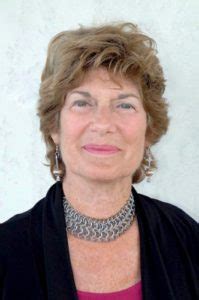A Quote by Martha Beck
Self-improvement books, friends, and polite strangers often tell soothing lies about our physical appearance that prevent many of us from facing, discussing, and solving our real problems.
Related Quotes
The relationships we have with our doctors are often the most trusted relationships of our lives. Our doctors tell us hard truths that others will not. We often tell our doctors what we will not tell others. We trust our doctors to give us the good, the bad and the ugly about our health so that each of us can make an informed decision.
It is not OK in this culture to talk to friends about causes you believe in, much less to ask them to join in. It's OK to blast perfect strangers with crass messages every hour of the day, but it's a tinge embarrassing, it brings up some shyness, it seems an intrusion, it risks rejection to share real heartfelt commitments. It's easier to share our cynicism with strangers than our dreams with friends.
From the beginning, I've stressed that home is something internal, invisible, portable, especially for those of us with roots in many physical places; we have to root ourselves in our passions, our values and our deepest friends. My home, I've always felt, lies in the songs and novels that I love, in the wife and mother that I'm never far away from, in the monastery to which I've been returning for 25 years.
It is in the whole process of meeting and solving problems that life has meaning. Problems are the cutting edge that distinguishes between success and failure. Problems call forth our courage and our wisdom; indeed, they create our courage and our wisdom. It is only because of problems that we grow mentally and spiritually. It is through the pain of confronting and resolving problems that we learn.
He comes to us in the brokenness of our health, in the shipwreck of our family lives, in the loss of all possible peace of mind, even in the very thick of our sins. He saves us in our disasters, not from them. He emphatically does not promise to meet only the odd winner of the self-improvement lottery. He meets us all in our endless and inescapable losing.
I am very astonished that the scientific picture of the real world around me is deficient. It gives a lot of factual information, puts all our experience in a magnificently consistent order, but it is ghastly silent about all and sundry that is really near to our heart, that really matters to us. It cannot tell us a word about red and blue, bitter and sweet, physical pain and physical delight; it knows nothing of beautiful and ugly, good or bad, God and eternity.
Consequential strangers help us stretch beyond the relatively rigid boxes that the people who have known us the longest - our family and close friends - often put us into. Through interacting with people who do not know us as well, we are more free to experiment with ourselves, and less likely to have our new behaviors and roles reflected back to us by people who object, 'But that's not like you!'


































